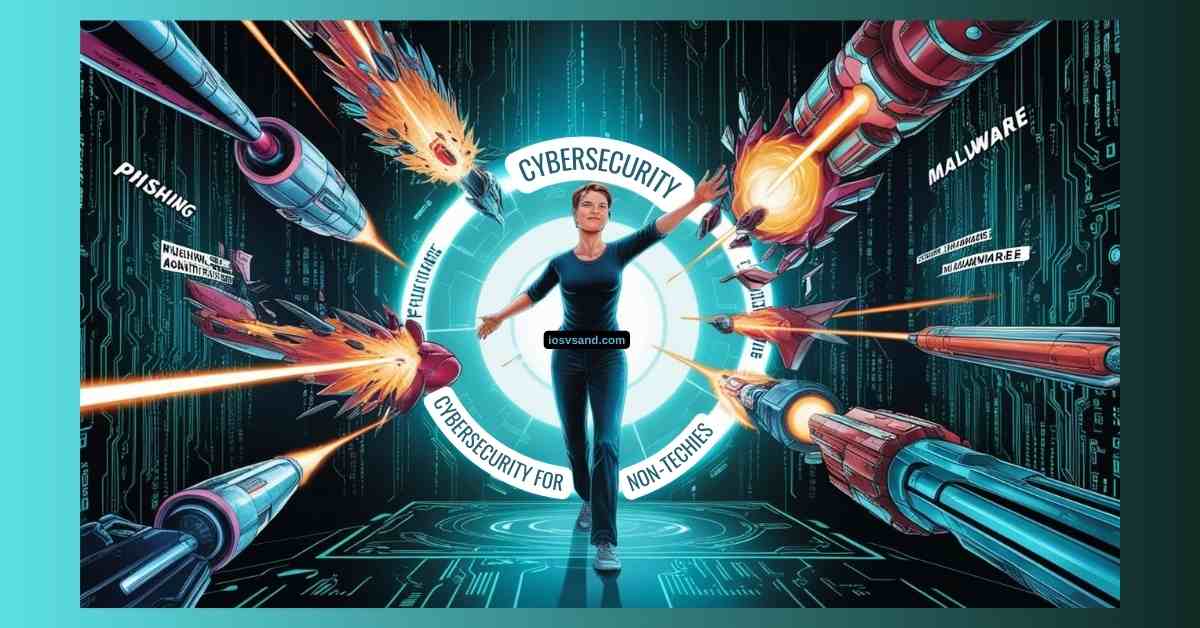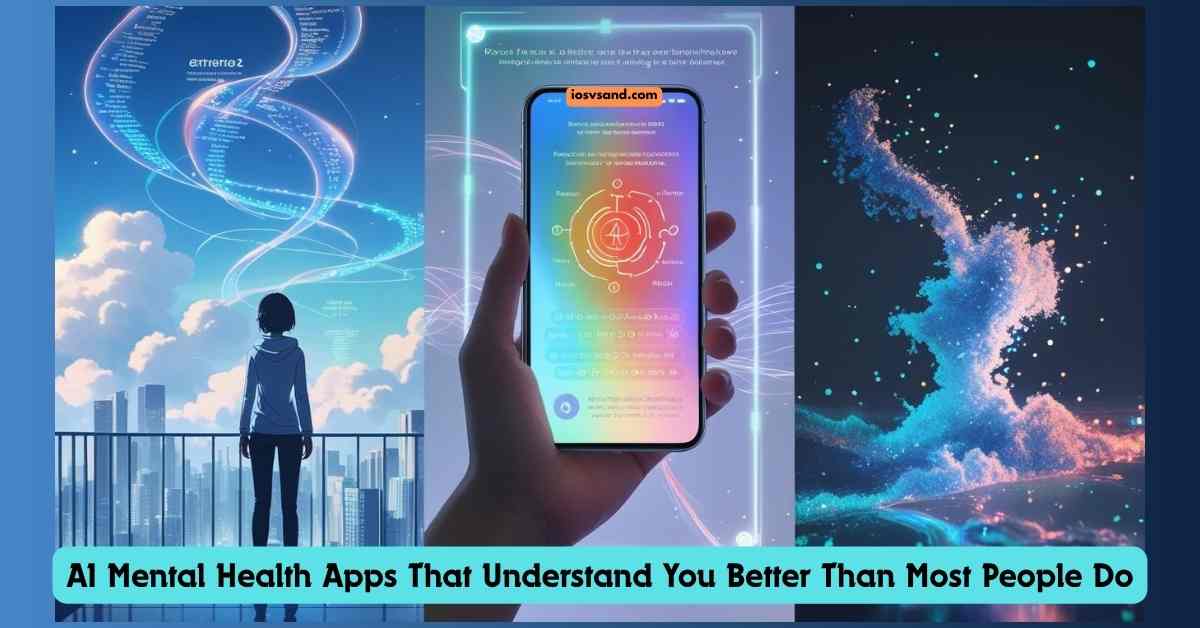Let's be brutally honest: most so-called "smart" home tech is dumber than a bag of…

MASTER Online Security: Cybersecurity for Non-Techies – Simple Steps, Maximum Protection (2025 ver.)
Cybersecurity for Non-Techies: Your Digital Life is at STAKE! 🚨
The internet = oxygen for our lives. We talk, work, play, and handle MONEY online. But DANGER lurks in this digital world. It’s coming for EVERYONE, techy or not! Ignoring cybersecurity (online safety) in 2025 is like walking with an open wallet in a crowd. It’s NOT just for geeks. It’s a MUST-HAVE life skill! Protecting yourself sounds hard, but simple moves can save you from digital DISASTER!
- Understanding Common Threats: What Could Happen to YOU? 🤔
- Phishing Attacks: Don’t Take the BAIT! 🎣
- Social Engineering: They’re Playing MIND GAMES With You! 🧠
- Malware: The Digital GERMS That Can Wreck Your Life! 🦠
- Recognizing Scams and Attacks: Your First Line of DEFENSE! 🔍
- Protecting Your Digital Life: Your Shield Against Cyber Threats! 🛡️
- What If? Responding to Security Incidents: Don’t PANIC, Act FAST! 🤷♂️
- Staying Informed: Your Ongoing Digital EDUCATION! ℹ️
- Conclusion: You CAN Be Cyber-Savvy! 🫵
- FAQs
Understanding Common Threats: What Could Happen to YOU? 🤔
Dodge digital bullets by knowing the shooters and their targets. Online scams are traps for your cash or info. BIG DEAL? Losing savings, identity theft, leaked photos <– WHY YOU SHOULD CARE!
Imposter Scams: They Want Your LOGIN, Your MONEY, Your PEACE! 🎭
Imagine a text EXACTLY like your bank about suspicious activity. Click NOW to verify! HOLD UP! That’s an imposter scam. Digital wolves in sheep’s clothing. They pretend to be trusted by banks, the government, and even family! It used to be phone calls, but in 2025, it’s sneaky texts and emails <– easy to fake. Fall for it? They drain your account or steal your identity. Real consequence: Empty wallet, ruined credit, endless headaches. ALWAYS verify through official channels!
Romance Scams: Heartbreak AND Empty Pockets! 💔
Swiped right on “perfect”?It might be FAKE! Romance scams = emotional landmines. Heartless crooks create fake profiles on dating apps and social media. Shower you with attention, build fake love. Then, sob stories and money requests for emergencies or fake investments. In 2025, “romance baiting” (used to be “pig butchering” <– WTF?) is RISING. They rush “love” to get HUGE money FAST. Real consequence: Broken heart AND wiped bank account. Your emotions = your weapon!
Employment Scams: Fake Jobs, REAL Losses! 💼
Desperate for a job? Scammers know. They dangle fake, high-paying remote job offers. The CATCH? Upfront fees for “training” or “equipment.” Promise you’ll be RICH later. Or worse, trick you into being a money mule <– ILLEGAL! They ask for bank details for “direct deposit.” Really? Setting you up for FINANCIAL RUIN. The real consequence: Lost money on fake fees and potential criminal trouble. Your job search = NIGHTMARE!
Cryptocurrency and Investment Scams: Get Rich Quick Schemes = BROKE! 🚀
Cryptocurrency hype is REAL. So are the scams! Bad actors prey on quick riches with fake investment schemes. INSANE returns, ZERO risk? BULLSHIT! They might use deepfake videos of famous people endorsing these scams <–. It looks legit. TRUTH? Illusion to steal your savings. Real consequence: Lose EVERYTHING. Long-term financial HARDSHIP. Don’t let greed CLOUD your judgment!
AI-Powered Scams: They’re SMARTER, So You Need to Be TOO! 🤖
Smart computer stuff, AI, is now a SCAM weapon! They use AI to create REALISTIC phishing emails (fake emails), mimicking real companies. Generate deepfake videos of trusted people. Even clone voices! It makes scams super believable and harder to spot for regular folks. Real consequence: Data breaches, financial theft, privacy INVASION. Game CHANGED. You need to ADAPT!
| Scam Type | Description | Example | Real Consequence |
|---|---|---|---|
| Imposter Scams | Pretending to be someone trusted to steal info or money. | Text from “bank” asking to check your account. | Empty wallet, ruined credit, endless HASSLE. |
| Romance Scams | Fake online relationships to get money. | Someone on a dating app asking for money after acting like they REALLY like you. | Broken heart, financial DEVASTATION. |
| Employment Scams | Fake jobs offer to steal information or money. | Asked to pay for “training” for a fake work-from-home job. | Lost money, potential LEGAL trouble. |
| Cryptocurrency and Investment Scams | Fake ways to invest in cryptocurrency or other things for big profits. | Email about a cryptocurrency investment promising FAST riches. | Loss of EVERYTHING, financial RUIN. |
| AI-Powered Scams | Scams use smart computer stuff to look and sound real. | Fake video of a celebrity telling you to invest in a fake thing. | Data breaches, financial theft, privacy INVASION. |
Phishing Attacks: Don’t Take the BAIT! 🎣
Think of phishing as sneaky emails, texts, or calls tricking you into giving passwords, credit card details, or Social Security numbers. They pretend to be legit organizations. WHY CARE? Giving away this info = giving bad guys keys to your DIGITAL KINGDOM!
Email Phishing: They’re Landing in Your INBOX Right NOW! 📧
Fake emails looking like real companies are a HUGE problem. They create urgency or offer tempting things to make you click. NOW, with AI, these emails are INCREDIBLY convincing. Perfect grammar and personalized details. Imagine an email EXACTLY like your work asking you to click a link for an “important document.” Fall for it? They steal your login and access ALL your company’s sensitive info! Real consequence: Job loss, company data breach, serious LEGAL trouble.
SMS Phishing (Smishing): Texts That Can COST You! 📱
Smishing = phishing through text messages. They send a text looking like a trusted company with an urgent message and a link. Common one in 2025: unpaid toll text. Click? They could install malware (bad software) on your phone or steal your personal info. Phones often have WEAKER security than computers. Makes smishing a VERY effective scammer tool. Real consequence: Phone HACKED, personal data STOLEN, financial LOSSES.
Voice Phishing (Vishing): They Can Even SOUND Like Your BOSS! 📞
Vishing uses phone calls or voicemails to trick you. Scammers impersonate trusted organizations like your bank or tech support. SCARY PART? With AI voice cloning, they can PERFECTLY mimic voices you know: your boss, family! Imagine a call EXACTLY like your CEO demanding an IMMEDIATE wire transfer. Don’t verify? You could be sending money to CRIMINALS! Real consequence: HUGE financial losses for you or your company, potential job REPERCUSSIONS.
QR Code Phishing (Quishing): Scan With CAUTION! 📇
Handy QR codes everywhere? Scammers use them for EVIL! Quishing embeds malicious website links in QR codes you find in public or on fake flyers. You scan, thinking it’s legit, but it takes you to a fake login page to steal your credentials. We use QR codes SO MUCH that we often don’t think twice before scanning! Real consequence: Your login details are STOLEN. Account takeovers. Potential financial LOSSES.
Social Media Phishing: Beware of Those DMs! 👥
Social media phishing happens through direct messages, fake links on profiles, or even hacked accounts on Facebook, Instagram, Slack, and Teams. You might get a suspicious link from a “friend” whose account is compromised. Or see a fake ad promising UNBELIEVABLE deals. Click? You could be handing over your login info or downloading malware. Real consequence: Your social media accounts are HACKED. Personal info EXPOSED. Your friends and family could become VICTIMS, too.
Social Engineering: They’re Playing MIND GAMES With You! 🧠
Social engineering = manipulating you into taking actions or revealing secret info. They play on your emotions, trust, or fear to get what they want. WHY CARE? These tactics bypass even the STRONGEST technical security!
Pretexting: Believable LIES That Can COST You!
Pretexting = creating a fake story to trick you into giving info. NOW, AI makes these stories even MORE convincing! Imagine a call from someone pretending to be your company’s IT department. Network issue! They need your login to fix it. Fall for their believable lie? You’re handing them keys to your DIGITAL KINGDOM! Real consequence: Data breaches, unauthorized access to sensitive info, potential financial LOSSES for you or your company.
Baiting: Temptation Can Lead to TROUBLE!
Baiting = dangling something you REALLY want to trick you. Infected USB drives in public. Emails with fake software updates or free prizes. Click or plug it in? BAM! Your device has malware. Real consequence: Your computer is COMPROMISED. Personal data STOLEN. Potential for MORE attacks.
Impersonation: They’ll Try to Be Someone They’re NOT!
Similar to imposter scams but can happen in person. Attackers pretend to be legit people: employees and authority figures. Gain your trust and access secure areas or info. They might use social media info to make their disguise believable. Imagine someone dressed as a delivery person trying to get into your office. Real consequence: Physical security breaches, theft of sensitive info, potential HARM.
Quid Pro Quo: A Favor That Comes at a PRICE!
Quid pro quo = “something for something.” They offer a service or benefit for info. Example: someone calls pretending to be tech support. Fix your computer if you give login credentials. Sounds helpful? WRONG! They’re stealing your info. Real consequence: Your computer is COMPROMISED. Personal data STOLEN. Potential for FURTHER exploitation.
Malware: The Digital GERMS That Can Wreck Your Life! 🦠
Malware = any bad software designed to harm your computer or steal your info WITHOUT your permission. Digital virus! Spreads cause problems. WHY CARE? Malware leads to data loss, financial theft, and identity theft. Can even make your devices UNUSABLE!
Ransomware: Pay Up or Lose Your Files FOREVER! 🔒
Ransomware = digital hostage taker. It locks your files and demands ransom (usually cryptocurrency) to get them back. In 2025, it’s NASTIER! Now, they might ALSO steal your files and THREATEN to release them if you don’t pay (double extortion). Or even go after your customers (triple extortion)! New ransomware groups pop up all the time. Easier for less skilled criminals to launch attacks thanks to “Ransomware-as-a-Service” (RaaS). Real consequence: Loss of irreplaceable files (photos, docs). HUGE financial loss (paying ransom = NO guarantee of getting files back!). Business DISRUPTION.
Spyware: The Secret STALKER on Your Computer! 👁️
Spyware = creepy secret agent. Sneaks onto your computer and watches EVERYTHING without you knowing. Records keystrokes (passwords!), takes screenshots and steals sensitive data. Designed to be SNEAKY. He hides for long periods and quietly sends your info to bad guys. Real consequence: Your passwords STOLEN. Online accounts COMPROMISED. Personal info EXPOSED. Potential identity theft and financial FRAUD.
Viruses and Worms: The OLD Threats That Still BITE! 🐛
Older malware, but still around, still causes trouble. They copy themselves and spread to other computers. Cause damage, disrupt things. Viruses need you to open an infected file to spread. Worms spread on their own across networks. They keep finding NEW ways to hide. Don’t underestimate them! Real consequence: Computer crashes, data corruption, spread of infection to your network and contacts.
Cryptojacking: They’re Stealing Your Computer’s POWER! ⛏️
Cryptojacking = someone secretly uses your computer’s power to mine cryptocurrency without your permission. You might not notice. But it makes your computer SLOW and uses lots of electricity. Became popular recently because cryptocurrency value WENT UP. The real consequence: Slow computer performance, increased electricity bills, and potential hardware DAMAGE.
Fileless Malware: The SNEAKY Software That Leaves NO Trace! 👻
Advanced malware. Doesn’t save bad files on your hard drive. Runs DIRECTLY in your computer’s memory. Harder for traditional antivirus to detect. It uses normal system tools to do bad things. Very effective at staying HIDDEN. Real consequence: Bypassing traditional security. Attackers steal data or control your system without being easily FOUND.
Recognizing Scams and Attacks: Your First Line of DEFENSE! 🔍
Knowing the warning signs = MOST important step in online protection. Like spotting a poisonous plant <– could save you PAIN!
Phishing Detection: Spot the RED FLAGS Before You Click!
Watch out for these to identify phishing:
- Generic greetings like “Dear Customer” instead of YOUR NAME <– Real companies usually know your name!
- Suspicious email addresses and website links with misspellings or weird additions <– ALWAYS double-check!
- Poor grammar and spelling errors <– Professional companies have EDITORS!
- Messages creating URGENCY or threatening bad consequences if you don’t act IMMEDIATELY <– Scammers want you to PANIC!
- Be CAUTIOUS about clicking links or opening unexpected attachments <– THINK before you click!
- Hover the mouse over links (WITHOUT clicking!) to see the REAL website address. Looks legit?
- NEVER open attachments with strange file extensions like “.exe” if you weren’t expecting them.
- Legit organizations ALMOST NEVER ask for sensitive personal info like passwords or Social Security via email or text.
- Be SUSPICIOUS of ANY unexpected communication, even if it looks like someone you know <– Their account could be HACKED!
- Watch out for emails where the “reply to” address is DIFFERENT from the sender’s email address.
- REMEMBER, AI can make phishing emails look INCREDIBLY real NOW!
- Pay attention to ANY warnings your email program gives you about sender authenticity.
Identifying Social Engineering Tactics: Don’t Let Them PLAY You!
Spotting social engineering = recognizing manipulation:
- Be worthy of offers that sound TOO GOOD to be true. Miracle? Probably a SCAM!
- Promises of unusually HIGH returns or FREE gifts = HUGE red flags.
- Scammers often try to build TRUST quickly. Fake romantic interest or sob stories.
- They’ll often try to RUSH you or tell you to keep it a SECRET <– Classic manipulation!
- Look for INCONSISTENCIES in their stories or online profiles. Things don’t add up?
- Be VERY careful if they PRESSURE you to do something unusual or against normal procedures.
Recognizing Malware Infection Symptoms: Is Your Device Acting SICK?
If your computer or phone acts STRANGE, it might have malware:
- Suddenly, INCREDIBLY SLOW for no reason.
- Seeing a FLOOD of pop-up ads.
- Homepage or search engine CHANGES without you doing it.
- New programs or toolbars appear that you DIDN’T install.
- Getting STRANGE error messages.
- Internet activity SPIKES even when you’re not online much.
- Your antivirus or firewall mysteriously TURNS OFF.
- A message pops up demanding PAYMENT to unlock your files or computer.
Protecting Your Digital Life: Your Shield Against Cyber Threats! 🛡️
Your FIRST and MOST POWERFUL defense = strong passwords. Gatekeepers to your online world!
Mastering Password Security: Your First Line of DEFENSE!
STRONG, UNIQUE passwords for EVERY online account = ESSENTIAL! Weak or reused passwords = leaving your front door UNLOCKED for cybercriminals. Does the bad guy crack ONE password? They’ll try it on ALL your accounts! Experts say to focus on PASSWORD LENGTH over complexity. Aim for 12-16 characters. Even longer passphrases (memorable phrases) are BETTER and EASIER to remember! Mix uppercase, lowercase, numbers, and special symbols if allowed. NEVER use common words, phrases, personal info (pet’s name), or obvious sequences like “12345”. Make EVERY new password DIFFERENT from the old ones! Add extra letters or use the first letters of a memorable phrase to make them STRONGER and easier to remember.
Leveraging Password Managers: Your Digital Security ASSISTANT!
Password managers = super secure digital vaults. Store and remember ALL your login details. They can even GENERATE strong, unique passwords for every website. You don’t have to! Top-rated password managers in 2025: RoboForm, NordPass, Total Password, 1Password, Dashlane, Bitwarden. GAME CHANGER for online security!
Enabling Multi-Factor Authentication (MFA): The DOUBLE LOCK for Your Digital Doors!
Multi-factor authentication (MFA) adds EXTRA security to your accounts. Even if a hacker steals your password, they’ll need a SECOND way to prove it’s you: code sent to your phone or generated by an app. DOUBLE LOCK for your digital doors! ABSOLUTELY turn on MFA for every account that offers it. Using an authenticator app is GENERALLY more secure than getting the code via text.
Securing Your Home Wi-Fi Network: Lock Down Your Digital HOME BASE!
Your home Wi-Fi network = gateway to your digital life. NEEDS to be SECURE!
- Change the DEFAULT password on your router (broadcasts Wi-Fi). Default password = WEAK, easy to guess!
- Regularly UPDATE the firmware (software) on your router. Updates include important security FIXES.
- Make sure your Wi-Fi uses STRONG encryption. WPA3 Personal or WPA2 Personal = BEST. Avoid older, less secure like WEP.
- Consider changing the DEFAULT name (SSID) of your Wi-Fi. Makes it slightly harder for attackers to identify.
- DISABLE the “remote management” feature in your router’s settings. Prevents hackers from accessing your router from the internet.
- Set up a separate “guest network” for visitors. It isolates your main network and protects your devices.
- Make sure the built-in firewall on your router is TURNED ON. Acts as a barrier against unauthorized access.
Protecting Your Devices: Keep Your Digital TOOLS Safe!
Keeping computers, smartphones, and tablets protected = KEY steps:
- Keep ALL software on your devices UP TO DATE. Updates include crucial security patches.
- Install reputable antivirus and anti-malware software. Keep it REGULARLY updated. Detects and removes bad threats.
- Be EXTREMELY cautious when downloading software and files. ONLY download from trusted sources.
- When using public Wi-Fi (coffee shops, airports), consider using a VPN (Virtual Private Network). Encrypts your internet traffic, making it MORE secure.
- For smart home devices (IoT devices): smart TVs, security cameras, smart speakers. Change default passwords. Keep firmware updated. Isolate them on a separate guest network if possible. These can be VULNERABLE entry points for hackers.
Social Media Safety: Think Before You Post (and CLICK!)
Social media = great for connecting. Also has RISKS!
- Enable multi-factor authentication (MFA) on ALL your social media accounts. EXTRA security layer.
- Use STRONG, UNIQUE passwords for each platform. Don’t use the SAME password for everything!
- Be MINDFUL of the personal info you share publicly. Once it’s out there, it’s HARD to take back.
- Review and adjust your PRIVACY settings on each platform. Control who sees your posts and info.
- Be EXTREMELY cautious of suspicious messages or links, even from friends. Their accounts might be HACKED!
- Consider disabling location services on your social media apps. You might not want EVERYONE knowing your location ALL the time.
- Regularly review which third-party apps have access to your accounts. REVOKE access for apps you no longer use or trust.
Protecting Your Personal Information Online: Treat It Like GOLD!
Your personal info is VALUABLE. Protect it like GOLD!
- ALWAYS make sure websites for sensitive info start with HTTPS. The “s” = secure connection.
- Avoid sensitive transactions (banking, shopping) over public Wi-Fi. Often NOT secure.
- Regularly MONITOR your credit report for unauthorized activity. Free credit report once a year from each major bureau.
- Utilize privacy settings on social media to LIMIT who sees your personal info.
- Enable multi-factor authentication WHENEVER possible.
- Before getting rid of old devices, SECURELY wipe ALL your personal info. Simply deleting files might NOT be enough.
Planning for the Unexpected: Data Backups – Your Digital SAFETY NET!
Imagine your computer CRASHES. You lose ALL your photos, docs, and files! DEVASTATING! That’s why data backups = a digital safety net! Regularly copy important files to an external hard drive. Use cloud backup services (automatically save files online). Good strategy: “3-2-1 backup rule“: three copies of your data, on at least two types of storage, with one copy stored offsite (like the cloud). Popular cloud backup services: IDrive, Backblaze, Carbonite, Sync.com. If disaster strikes, easily restore from your backup. Special data recovery software can sometimes help, but backups = are your MOST RELIABLE defense against data loss.
What If? Responding to Security Incidents: Don’t PANIC, Act FAST! 🤷♂️
Even with precautions, incidents CAN happen. Reacting quickly minimizes damage and helps recovery. If you suspect a scam or security breach:
- STOP! End ALL communication with the scammer or suspicious contact. Don’t click links, download attachments, or give info.
- CHANGE YOUR PASSWORDS! IMMEDIATELY change passwords for ALL online accounts (email, banking, social media). Choose STRONG, UNIQUE passwords you haven’t used before.
- ENABLE TWO-FACTOR AUTHENTICATION! Turn on 2FA for ALL important accounts. It’s a crucial second security layer.
- CONTACT AFFECTED COMPANIES! If you shared financial info or log in details, contact your bank, credit card companies, or other providers RIGHT AWAY. They can secure accounts and monitor for fraud.
- MONITOR YOUR ACCOUNTS! Keep a CLOSE eye on bank accounts, credit card statements, and other online accounts for unauthorized activity. Set up alerts for unusual activity if possible.
- RUN A MALWARE SCAN! Run a FULL scan with reputable antivirus and anti-malware software if you suspect malware. Follow the software’s recommendations to remove threats.
- BACK UP YOUR DATA! If you haven’t recently, back up important data to a separate device or cloud storage. Protect against data loss in case of ransomware or other incident.
- REPORT THE INCIDENT! Report the scam or incident to authorities: local police or your country’s cybercrime agency. In the US, report to FTC: ReportFraud.ftc.gov. Reporting helps track cybercriminals and prevent others from becoming VICTIMS.
Staying Informed: Your Ongoing Digital EDUCATION! ℹ️
The cybersecurity world is CONSTANTLY changing. New scams and attacks appear all the time. Staying informed = ONGOING process. CRUCIAL for keeping your digital life SAFE!
- Follow reputable cybersecurity news sources, blogs, and social media. Stay updated on emerging threats and trends.
- Many organizations and government agencies offer FREE resources and alerts. USE THEM!
- Consider participating in cybersecurity awareness training if you can. Valuable insights and practical skills.
- Be aware of scams that appear during specific times: tax season and holidays.
- Share info about scams with friends and family. Raise awareness and protect others. WE’RE ALL IN THIS TOGETHER!
Cybersecurity never sleeps. New threats pop up FASTER than viral dances. Good news? KNOWLEDGE = POWER. You don’t need a deep dive into the dark web. A few KEY resources keep you SAFE. Remember: OFFICIAL GOVERNMENT SITES and TRUSTED CYBERSECURITY ORGS are your ALLIES against online creeps.
USA:
Cybersecurity and Infrastructure Security Agency (https://www.cisa.gov)
Federal Trade Commission Consumer Information (https://www.consumer.ftc.gov/)
UK:
National Cyber Security Centre (https://www.ncsc.gov.uk/)
Get Safe Online (https://www.getsafeonline.org/)
Canada:
Canadian Centre for Cyber Security (https://cyber.gc.ca/en/)
Get Cyber Safe (https://www.getcybersafe.ca/)
Australia:
Australian Cyber Security Centre (https://www.cyber.gov.au/)
Stay Smart Online (https://www.staysmartonline.gov.au/)
India:
Indian Computer Emergency Response Team (CERT-In) (https://www.cert-in.org.in/)
MeitY Cyber Swachhta Kendra (CASK) (https://www.meity.gov.in/)
Conclusion: You CAN Be Cyber-Savvy! 🫵
So there you have it! Cybersecurity for non-techies IS achievable with awareness and proactive steps. Understand common threats, spot red flags, and use strong passwords, secure devices, home networks, and social media. You CAN significantly reduce your risk of cybercrime. KEEP LEARNING and staying VIGILANT! You have the power to navigate the digital world with GREATER confidence and security. NOW GO FORTH AND CLICK SAFELY!
FAQs
Can just opening an email lead to a hack?
Not usually. Targeted attacks are rare. CLICKING LINKS or DOWNLOADING ATTACHMENTS is the REAL threat. Treat your inbox like a suspicious package. ALWAYS VERIFY THE SENDER before opening anything.
Antivirus vs. VPN – are they the same?
Different shields for different battles. ANTIVIRUS PROTECTS YOUR DEVICE. VPN ENCRYPTS YOUR INTERNET. Public Wi-Fi? VPN makes you a ghost. Both are VALUABLE TOOLS in your cyber arsenal.
Is incognito mode my online invisibility cloak?
Helps hide your tracks LOCALLY. But WEBSITES, PROVIDERS, HACKERS can still see you. Think of it as tinted windows, not an invisibility cloak. It’s a tool for privacy, not ultimate security.
My smart fridge can be hacked? Seriously?
Sadly, often YES. IoT DEVICES (thermostats, speakers, etc.) are weak spots. KEEP THEM UPDATED. Use strong Wi-Fi passwords. Research the brand’s security record. Treat them like tiny computers that need protection.
Browser password saving – convenient or crazy?
Better than sticky notes, WORSE than a pro. DEDICATED PASSWORD MANAGERS offer stronger encryption. Browser saving? Make your MASTER PASSWORD EXTRA STRONG if it’s your only option. Think of it as a basic lock versus a bank vault.



